To Jack Starkey,
for valor and extraordinary love,
and to the writing kids of Brewster, New York
Contents
T HIS IS A BOOK about writing fiction. But it should help you write anything: e-mails, essays, greeting cards, love letters, skywriting.
Pick one of the options below and use it as the beginning of a story. You can revise the sentences a little or a lot to make them work better for you. Feel free to change the names and to turn boys into girls or vice versa. Write for at least twenty minutes.
Oh, and have fun!
 I have one green eye and one brown eye. The green eye sees truth, but the brown eye sees much, much more.
I have one green eye and one brown eye. The green eye sees truth, but the brown eye sees much, much more.
 The ghost was eating a peanut butter and jelly sandwich.
The ghost was eating a peanut butter and jelly sandwich.
 Be nice, my father said. After all, hes your brother.
Be nice, my father said. After all, hes your brother.
 I am the most famous twelve-year-old in the United States.
I am the most famous twelve-year-old in the United States.
 Jason had never felt so foolish before, and he hoped hed never feel so foolish again.
Jason had never felt so foolish before, and he hoped hed never feel so foolish again.
 If somebody didnt do something soon, they were going to have a catastrophe on their hands.
If somebody didnt do something soon, they were going to have a catastrophe on their hands.
 Alison was the runt of the family, born small and ill-favored, and by the time she was thirteen, she was still small and ill-favored.
Alison was the runt of the family, born small and ill-favored, and by the time she was thirteen, she was still small and ill-favored.
 It was a witchy house: the low-slung roof; that quiet gray paint; those squinting, shuttered windows; and the empty porch rocker that rocked, rocked, rocked day and night.
It was a witchy house: the low-slung roof; that quiet gray paint; those squinting, shuttered windows; and the empty porch rocker that rocked, rocked, rocked day and night.
 The first time I saw Stephen, he painted a hex sign on my right arm, and I couldnt move my fingers for three hours.
The first time I saw Stephen, he painted a hex sign on my right arm, and I couldnt move my fingers for three hours.
 Ms. Flemings wig had gone missing.
Ms. Flemings wig had gone missing.
Okay, youve done it. Congratulations! If you havent finished your story, save it so you can work more on it later. If you have finished, also save it.
At this point if you want to go back and use one of the other beginnings to write another story, please help yourself. Two stories are better than one, and three are better than two. If you like, you can write ten stories, or double up and write twenty!
Now here are a few rules for this book and for writing:
. The best way to write better is to write more.
. The best way to write better is to write more.
. The best way to write better is to write more.
. The best way to write more is to write whenever you have five minutes and wherever you find a chair and a pen and paper or your computer.
. Read! Most likely you dont need this rule. If you enjoy writing, you probably enjoy reading. The payoff for this pleasure is that reading books shows you how to write them.
. Reread! Theres nothing wrong with reading a book you love over and over. When you do, the words get inside you, become part of you, in a way that words in a book youve read only once cant.
. Save everything you write, even if you dont like it, even if you hate it. Save it for a minimum of fifteen years. Im serious. At that time, if you want to, you can throw it out, but even then dont discard your writing lightly.
That last rule needs explaining. I used to think, long ago, that when I grew up, Id remember what it felt like to be a child and that Id always be able to get back to my child self.
But I cant.
When you become a teenager, you step onto a bridge. You may already be on it. The opposite shore is adulthood. Childhood lies behind. The bridge is made of wood. As you cross, it burns behind you.
If you save what you write, you still wont be able to cross back to childhood. But youll be able to see yourself in that lost country. Youll be able to wave to yourself across that wide river.
Whether or not you continue to write, you will be glad to have the souvenirs of your earlier self.
The three items below arent rules; theyre vows. Say them aloud.
THE WRITERS OATH
I promise solemnly:
. to write as often and as much as I can,
. to respect my writing self, and
. to nurture the writing of others.
I accept these responsibilities and shall honor them always.
W HEN I WAS ABLE to make writing my full-time job, I felt like the luckiest person on the planet. So I decided to share my luck and teach a creative writing workshop in my hometown as a volunteer.
Ive been doing it for many years now, and its made me feel more fortunate than ever. Ive loved working with the kids whove come to me. I feel privileged to know them.
Theyre part of the reason for this book. In teaching writing, Ive learned more about how I write, more about the way fiction happens, more about the ways my writing gets into trouble and the ways my students writing gets into trouble. I want to share what Ive learned with as many kids as I can.
I write fiction for lots of reasons. One is power . Im in charge when I write. So are you. You create the world of the story. You make the rules.
I write to tell myself a story or to tell it to the child reader I once was, because I know what she would have liked. I write to change an old story and tell it the way I think it should be told. Most of all, I write to find out about myself. You learn what youre made of when you write. You amaze yourself by making a joke or writing something truly creepy. Huh! you think. I didnt know I could do that.
When I write, I make discoveries about my feelings. This example is a little sad, so get ready.
My father died in 1986, when I was thirty-eight, and my mother died in 1987. In 1989, before any of my work had been published, I wrote a picture book titled Dave at Night about an orphan boy who is sent to an orphanage to live. In real life, my father had been an orphan who grew up in an orphanage. In my story the boy has magical dreams about a couple whose son has died, and they have magical dreams about him. The couple and the boy meet when theyre awake and fall in love with each other. The couple adopts the boy, and they all live happily ever after.
No one would publish the picture book. I expanded it into a novel, and still no one would publish it. Eventually I put it aside and wrote Ella Enchanted . After Ella had been accepted for publication, I sent the novel version of Dave at Night to my editor.
She rejected it, too, but she asked me to consider revising it. I hadnt looked at it in a few years, so I reread itand got a shock.
When I wrote the book, I was still grieving intensely for my parents. Id thought I was writing about my father the orphan. But when I reread it, I realized the orphan Id been writing about had been me ! It was I who missed my parents so much, I wanted a new set.
I was hugely grateful for the insight. Before, I hadnt understood the depth of my feelings, but now I do. And writing got me there.
I was able to rewrite the book, and this time my editor accepted it.
Writing time!
Write a story about a main character who finds a diamond necklace on a seat in his school bus.
Thats the idea, but if you need to change it for the story, feel free. If the necklace turns into a hat that enables the wearer to hear peoples thoughts, thats okay. If the school bus seat turns into a seat in a movie theater, thats okay, too. Go where your story takes you.


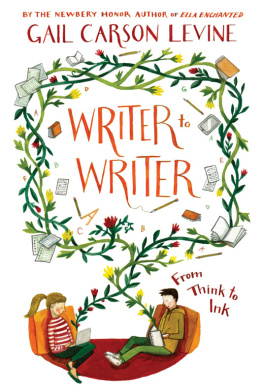
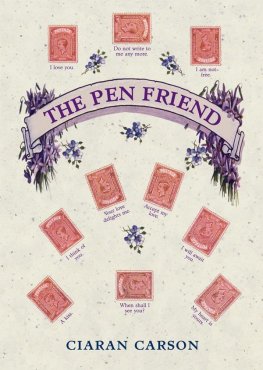
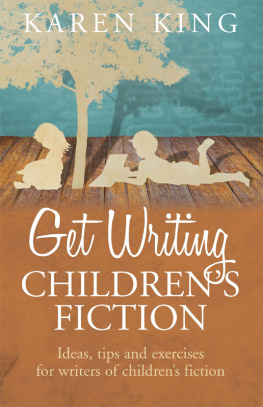
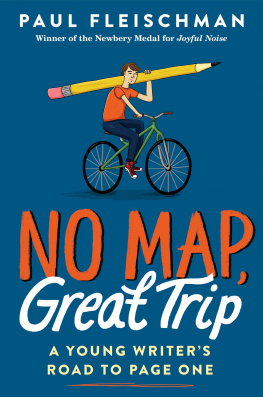
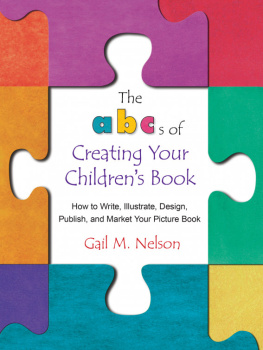
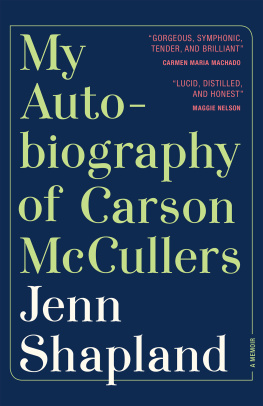
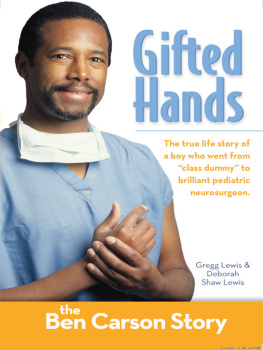
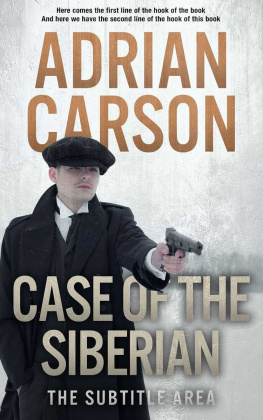

 I have one green eye and one brown eye. The green eye sees truth, but the brown eye sees much, much more.
I have one green eye and one brown eye. The green eye sees truth, but the brown eye sees much, much more.